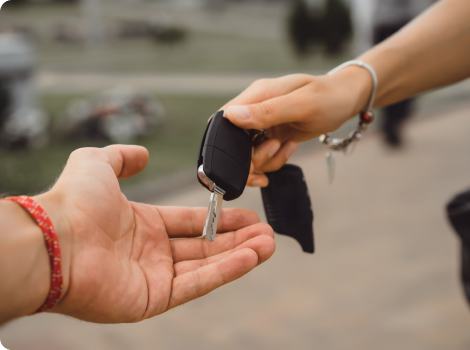Have you ever felt that sinking feeling in your stomach when you realized you couldn't find your car keys? It's one of the worst moments - you're late for work, have an important meeting or just want to go out, but your keys are nowhere to be found. Don't panic! Losing your keys is a common problem many people face.
In this article, we will walk you through the steps to retrace your footsteps, understand your essential type, and teach you how to get help from a locksmith if needed. We will also share some easy tips to make sure this doesn't happen again in the future. By the end, you'll feel more prepared should you ever misplace your keys.
Retrace Your StepsThe first thing to do when you realize you don't have your keys is not to panic. Take a deep breath and slowly reflect on when you last remember having them. Retracing your steps is really important. Think about everywhere you've been on the last day - at home, in your car, or at work.
Visualize every place and moment. Check everywhere you were - look in pockets of clothes you wore, bags you carried, and your car under seats. You never know; they could be somewhere silly, like falling behind furniture.
Getting someone to help search with fresh eyes can also find keys you may have overlooked. Don't quit searching until you've thoroughly checked every possible spot. You'd be surprised how retracing diligently has helped many find keys tucked away in unusual places.
Also Read: Where to Find Car Keys and Remotes
Know What Type of Car Key You Need
Once you've searched everywhere to no avail, figuring out exactly what type of car key you have is important. This will help if you need to get a replacement or have your locks rekeyed. There are a few main types:
- Traditional car keys: These are metal keys that are inserted into the ignition. Often, there is a pattern cut into the key for your vehicle.
- Key fob: Most modern vehicles now use fobs with buttons to lock/unlock doors remotely and a foldable remote key inside.
- Switchblade key: A key hidden within a fob that slides out smoothly to start the car.
- Transponder key: These carry a microchip communicating with systems for anti-theft. Without the original, newer cars may not start.
- Smart key: Some high-end models now use fobs or proximity sensors; no need to take the key out.
Knowing your key type ensures any replacement or assistance like jump starts can be provided smoothly.
Call a Locksmith or Roadside Assistance
If retracing and searching don't turn up your keys, the next step is to contact outside help. First, see if your vehicle insurance or roadside assistance covers services like lockouts - they can often directly help or point you towards a trusted locksmith. Locksmiths are professionally trained to get into all types of vehicles, from classics to the newest models, without damaging locks.
They carry high-tech tools and can reprogram keyless entry fobs or cut replacement metal keys using proprietary software and your vehicle's VIN number. By calling promptly, they usually arrive quickly to solve the problem, so you're back on the road in no time. Don't hesitate - professionals handle these issues every day and will have you feeling relief instead of anxiety in no time.
Cost of Replacing Different Car Keys- Replacing a car key depends on the key type and who does the work. Here are some estimates:
- Traditional metal keys - $10 from a hardware store. A locksmith may charge a bit more to make the key on-site.
- Key fobs - $50-100 depending on if you get an aftermarket or original manufacturer version. See if dealerships let you program yourself to save some money.
- Transponder keys - Around $200 plus possible tow fees. Transponder chips make these trickier than normal keys.
- Switchblade keys - Roughly $300 plus any towing charge. Their folding design increases replacement costs.
- Smart keys - A wide range from $200-500 depending on location, dealership, and your car type/model. Also, consider towing expenses.
- Dealership prices are usually the highest because of licensing fees for programming transponder chips or fobs. Going through independent locksmiths can help save some cash.
Tips To Avoid Losing Your Keys in the Future
To make sure this doesn't happen repeatedly, put some preventative practices in place:
- Always leave your keys in the exact, visible location at home, like a hook by the door; this makes them easy to spot in a rush. Out and about, keep them clipped to your belt loop or in your backpack.
- Have a spare car key made and stashed safely, like a lockbox with a trusted neighbor or friend. This provides backup in case of any emergency lockouts.
- Form the daily habit of checking your pockets, bags and surroundings before walking away somewhere to ensure keys aren't accidentally left behind.
- Consider an affordable, low-profile Bluetooth tracker to clip to your keychain like Tile. By triggering the tracker from your phone, it plays a sound to help locate misplaced keys nearby - a real lifesaver!
Conclusion
Losing your keys can feel stressful, but taking deep breaths and following the steps outlined can help you find them or get back on the road quickly. Whether carefully retracing steps, figuring out your key type, calling assistance or implementing better routines, this guide offers reassurance of what to do. And remember - you're not alone, as we all misplace things sometimes. The important thing is to be prepared so this predicament doesn't mean total distress. Follow these tips, and you'll feel secure knowing how to handle it if keys ever get misplaced again in the future.










